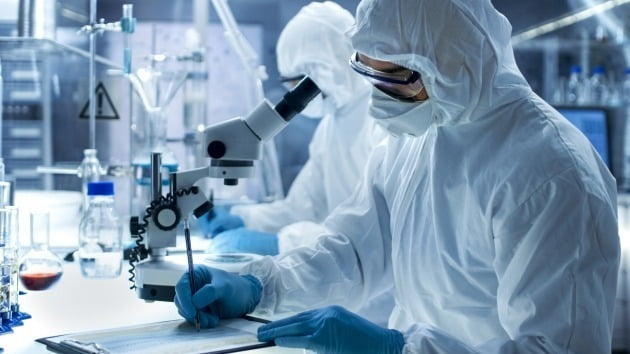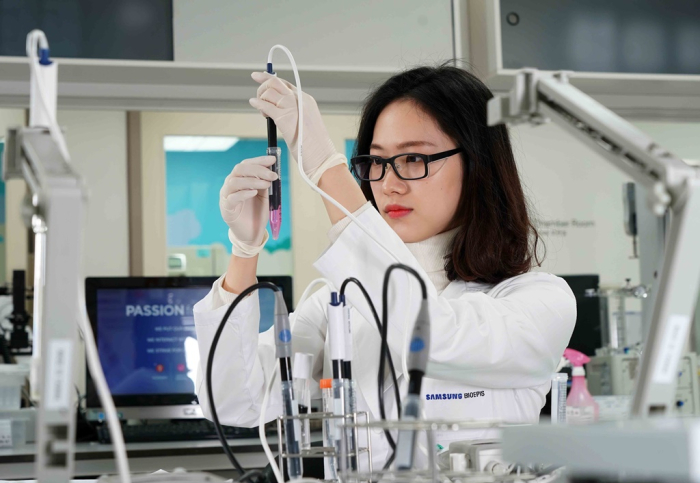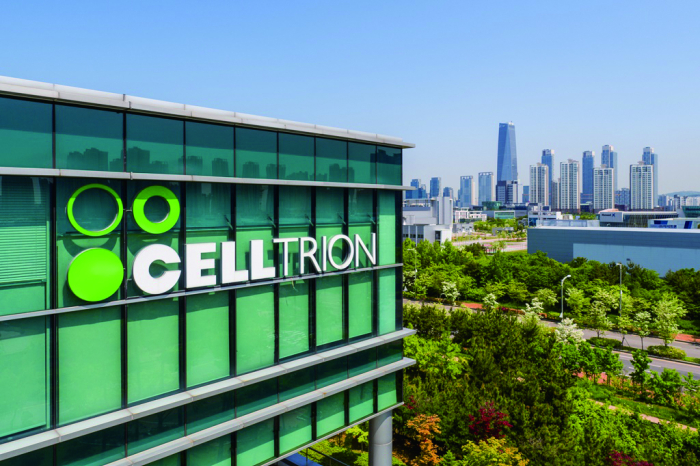Biosimilars
Samsung Bioepis gets FDA approval for Lucentis biosimilar Byooviz
The drug is the world's first ophthalmology biosimilar to gain approval by the FDA, according to Samsung
By Sep 23, 2021 (Gmt+09:00)
3
Min read
Most Read
LG Chem to sell water filter business to Glenwood PE for $692 million


Kyobo Life poised to buy Japan’s SBI Group-owned savings bank


KT&G eyes overseas M&A after rejecting activist fund's offer


StockX in merger talks with Naver’s online reseller Kream


Mirae Asset to be named Korea Post’s core real estate fund operator



Samsung Bioepis Co., a leading South Korean biopharmaceutical company, has received approval from the US Food and Drug Administration for its Byooviz, a biosimilar referencing Lucentis for the treatment of macular degeneration.
Byooviz is an anti-vascular endothelial growth factor (VEGF) treatment that can prevent the loss of eyesight in people suffering with retinal vascular disorders that can lead to irreversible blindness or visual impairments in adults.
The drug is the first ophthalmology biosimilar to gain approval by the FDA, according to Samsung Bioepis on Wednesday.
Lucentis is a medication for ophthalmic disease and has indications for treating macular degeneration and diabetic macular edema. Roche and Novartis are selling the medicine developed by Genentech. The drug’s global sales were about $3.4 billion last year. Its US patent expired in June of last year, while its European patent is scheduled to end in July of next year.
Samsung said Byooviz has already been approved in Europe, including 27 European Union (EU) member countries, and in the UK last month.
In November last year, the FDA started reviewing Samsung’s license application for the sale in the US of Byooviz, codenamed SB11.
Samsung is also developing SB15, a biosimilar of Bayer and Regeneron’s ophthalmic disease treatment Eylea, which is currently in phase 3 clinical trials. Eylea’s global revenue is about double that of Lucentis.

US SALE FROM JUNE 2022
In November 2019, Samsung Bioepis and its US partner Biogen Inc. signed a commercialization deal for the two ophthalmology biosimilar candidates, SB11 and SB15.
Under the terms of a global license agreement with Genentech, Samsung Bioepis and Biogen will have the right to market SB11 in the US as of June 2022 before the expiration of Genentech’s applicable supplementary patent certificates (SPCs), and elsewhere in other territories after the expiration of the SPCs.
Other Korean biopharmaceutical companies such as Chong Kun Dang Pharmaceutical Corp., Celltrion Inc. and Samchundang Pharm Co. are also joining the race for ophthalmology biosimilars.
Chong Kun Dang in July submitted its application to Korea’s Ministry of Food and Drug Safety for the sale of CKD-701, its Lucentis biosimilar, after completing its phase 3 clinical tests in Korea.
In South Korea, the patent for Lucentis already expired in 2018.
For Eylea biosimilars, four Korean companies – Samsung Bioepis, Chong Kun Dang, Celltrion, Samchundang and Alteogen Inc. – are working to market their products.

BIOSIMILARS IN PIPELINE
Samsung is currently conducting phase 3 clinical trials of SB15 in 10 countries with an aim to complete the tests in the second quarter of next year.
Samchundang also plans to complete its phase 3 trials in the second quarter of 2022, while Celltrion targets to finish its tests in 13 countries in the second half of next year.
Alteogen plans to file for the investigational new drug applications (IND) on its Eylea biosimilar through its biopharmaceutical affiliate Altos Biologics Inc.
According to UK-based data analytics and consulting firm GlobalData, the global ophthalmology biosimilar is projected to grow to 21 trillion won ($17.7 billion) by 2028 from 12.7 trillion won in 2020.
Biosimilars are products that have been demonstrated to be similar in efficacy and safety to the originator’s reference product, with the advantage that they offer cost savings and promote sustainable access to therapies.
Write to Ju-Hyun Lee at deep@hankyung.com
In-Soo Nam edited this article.
More to Read
-
 BiosimilarsSamsung Bioepis gets nod for sale of ophthalmology biosimilar in Europe
BiosimilarsSamsung Bioepis gets nod for sale of ophthalmology biosimilar in EuropeAug 23, 2021 (Gmt+09:00)
1 Min read -
 BiosimilarsKorean drugmakers race to release Stelara biosimilars
BiosimilarsKorean drugmakers race to release Stelara biosimilarsJul 22, 2021 (Gmt+09:00)
3 Min read -
 BiosimilarsCelltrion, Samsung Bioepis anticipate increased biosimilar sales in Europe
BiosimilarsCelltrion, Samsung Bioepis anticipate increased biosimilar sales in EuropeJul 12, 2021 (Gmt+09:00)
1 Min read
Comment 0
LOG IN


